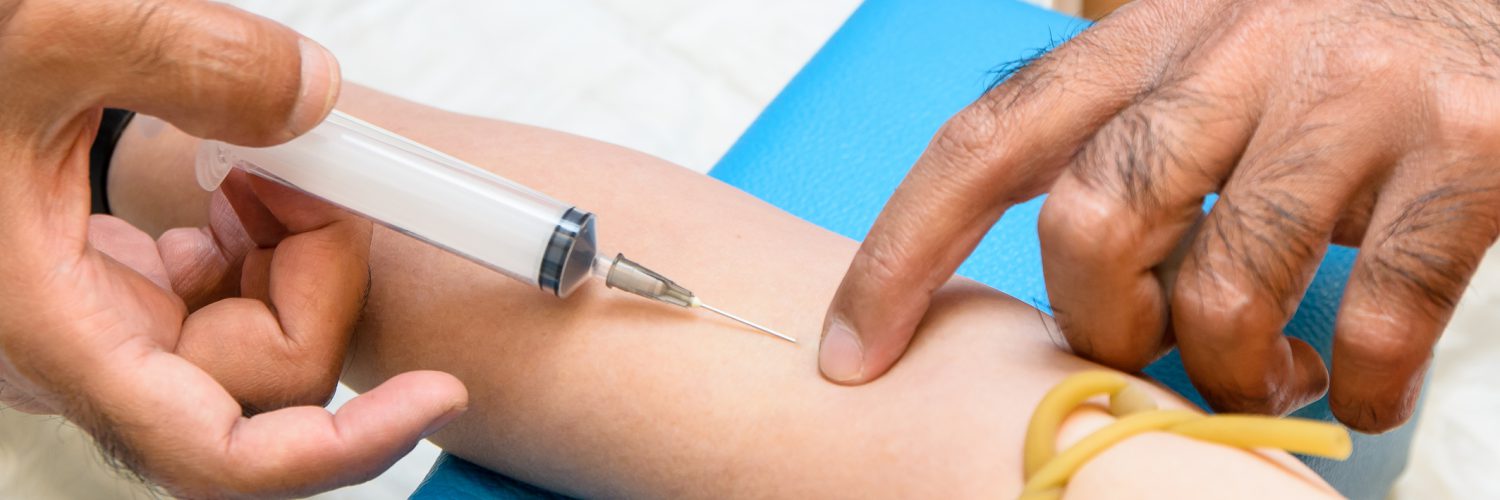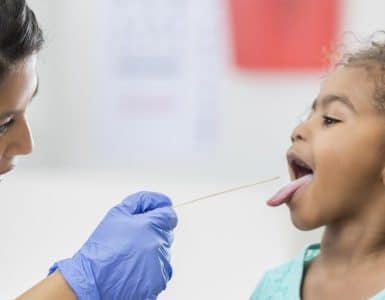Recent outbreaks have brought measles, a disease once eliminated in the United States, back into the spotlight. It is important to know that this highly contagious respiratory disease is vaccine-preventable. Protect yourself and your family by learning more about the measles and its complications.
How is measles spread?
The measles virus spreads easily through the air when affected people cough, sneeze or even talk. Measles is incredibly contagious – if not immune or immunized, up to 90 percent of people who encounter someone with the disease will become infected. The virus can also live on surfaces for several hours, so even after the infected person has left a location, it is possible to contract the disease. The Mayo Clinic notes that those infected are contagious up to four days before the first symptoms appear.
What are the symptoms?
Measles starts with a fever, runny nose, red eyes, dry cough and sore throat, followed by a rash that begins on the face before spreading all over the body. Once the rash develops, patients’ fevers may also rise quickly.
What are the complications?
While anyone who is infected with measles can develop serious complications, adults and very young children are especially susceptible.
Common complications include:
- Ear infections that could lead to permanent hearing loss
- Diarrhea
Severe complications include:
- Pneumonia (infection of the lungs)
- Encephalitis (swelling of the brain)
- Premature birth or low birth-weight (pregnant women)
- Death
Although rare, there are also long-term complications that can emerge years after someone has recovered from the disease.
Protect yourself, your family and others!
If you’ve already had measles, you can’t get measles again. However, the best way to protect yourself and your family is to complete recommended doses of the MMR (measles, mumps, and rubella) vaccine.
The Centers for Disease Control and Prevention (CDC) notes that the MMR vaccine is not only safe, but also very effective. Two doses of the vaccine, the recommended series per the CDC vaccination schedule, are about 97 percent effective at preventing the disease. While many people receive these vaccines as children, it is not too late if you are an adult who has not been immunized or had measles previously.
Exact vaccine recommendations vary by age – so talk to your doctor. Measles is included in CDC immunization schedule, meaning that there is no cost for people who have health insurance coverage that complies with the Affordable Care Act. Free and reduced-cost vaccines may also be available through public health services, such as the Vaccines for Children (VFC) program.
Because some people are unable to be vaccinated due to medical conditions, vaccination is even more important for those who are able to be immunized. The more people who are immune or immunized from measles, the less likely it is to spread.
Being vaccinated for measles is a relatively simple way to protect yourself and those around you from what can be a very serious illness. Talk to your doctor to find out more and discuss how to protect yourself and your family from measles.
Check out any of these resources for more information about measles and the measles vaccine:
If you’re a Health Advocate member, contact your Personal Health Advocate to schedule an appointment with your doctor to confirm if you are protected from the measles.



